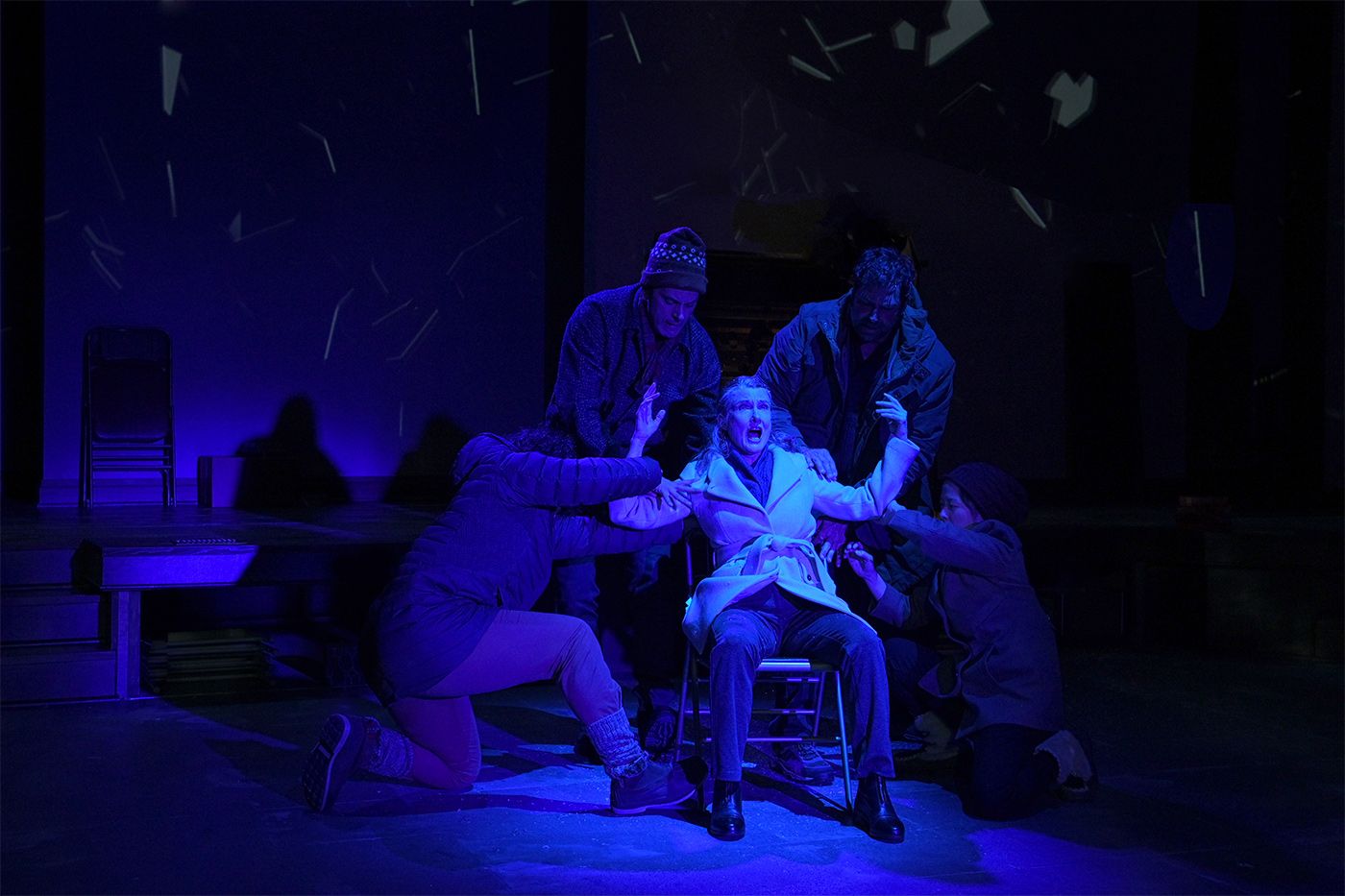Taking on a topic as enormous and fraught as the Bible, from a historical and intellectual perspective in our modern era, is an admirably ambitious feat. And in The Good Book, which is having its West Coast premiere at Berkeley Rep, playwrights Lisa Peterson and Dennis O'Hare make an impressive attempt to bring both humor and intellectual rigor to the conflicts between faith and biblical scholarship.
Experimental and whimsical in its structure and approach, The Good Book tries to bring to life a number of moments from the history of the Bible's creation and evolution — from actual events to oral history to scroll to codex to bound and printed book. It does so both with imagined scenes of early Christians physically saving original scrolls as they're displaced and exiled from place after place and monks hand-copying codices, and through the reading and scholarship of two contemporary characters: Miriam, an atheist Bible scholar (played by the marvelous Annette O'Toole); and Connor, a devout Catholic school boy who dreams of becoming a priest (played with great passion and earnestness by Keith Nobbs).
Throughout the piece, which liberally plays with magical realism, Miriam and Connor are visited both by figures from biblical stories in period costume, and given visions of the Bible's actual past — King Solomon, Mary Magdelene, the Apostle Paul, and Johannes Gutenberg all make appearances. Meanwhile Connor grows up from a teenage boy into a man in his late 20s or 30s, all the while struggling with his sexuality and trying to reconcile it with his faith, and Miriam is interviewed for a New Yorker profile and finds out the man she's had a long-distance relationship with for many years has become more devout, and can no longer reconcile her faithlessness.
Peterson (who also directs) and O'Hare make a valiant attempt to tell the "true story" of the Bible in broad strokes, highlighting all of the variables, oddities, mistakes, and missing pieces that very few in faith communities tend to acknowledge. And in that way the piece can become didactic at turns, and the emotional resonance of Miriam's and Connor's experiences tend to a feel superficially overlaid on this patchwork of lessons and factoids.

That's not to say the piece isn't entertaining or moving — it is both. O'Toole in particular does wonderful work as Miriam, raging against the faithful who try to cast doubts on her scholarship, questioning her own nuanced relationship with the text of the Bible, and expressing sorrow over her limited time on earth, and the limits of what she can accomplish.
But The Good Book is a play that still could use some trimming, and feels over-written. Its most successful moments are those when Connor and Miriam are at sea in their own lonely minds, left to make sense of an often incomprehensible existence. But these moments of genuine power get too often interrupted and undercut by the entrance of another goofy, two-dimensional cartoon character in a period costume from the distant past — to the point that by hour three of the play I found myself going "Here comes another one" every time another costumed ensemble member emerged. The structure, in which Miriam's and Connor's paths ultimately converge, also feels a bit too tidy for a play that is otherwise about the grand messiness of this culturally essential text.
The underlying lesson of The Good Book is that human foibles are woven throughout the telling of the Bible's many tales, and that gospels should never be taken as gospel. But it's in the layer of storytelling that's about the transcendental, undefinable stuff that this piece finds its soul, and that layer still seems to have some holes.
The Good Book plays through June 9 at Berkeley Rep. Find tickets here.

